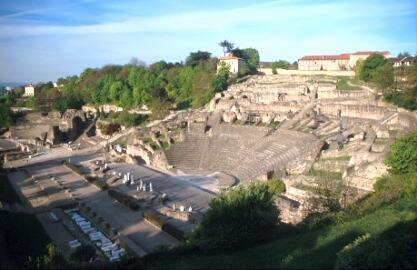Final Announcement
######################################################
## You can still propose for a contribution: ##
## The deadline for abstract submission is May 31 ##
## The deadline for registration is June 9 ##
######################################################
Dear colleague,
we are pleased to announce the first
international conference in the CRAL Conference Series,
titled "Chemodynamics: from first stars to local galaxies"
to be held July 10-14 2006 in the beautiful city of
Lyon, France.
There will be five large sessions:
* First stars and early metal production
* Galaxy winds and inter galactic medium enrichment at
intermediate redshifts
* The intra cluster medium as a laboratory for galaxy
chemodynamics
* Self-regulation processes in the interstellar medium of
local and not so local galaxies
* Detailed stellar feedback processes in the Milky Way
Reviewers and invited speakers for these 5 sessions will
include:
* Andrea Ferrara, Vanessa Hill, Raffaella Schneider,
Raphael Hirschi
* Anthony Aguirre, Dawn Erb, Philip Richter
* Sabine Schindler, Stefano Borgani, Brad Gibson
* Greg Bryan, Adrianne Slyz, Françoise Combes, Fabian Walter
* Nikos Prantzos, Kim Venn, Keiichi Wada, Julien Devriendt,
Hervé Wozniak
* and Colin Norman for the summary talk.
Registrations are opened, and we *encourage* you to apply
*early*.
See our web site for information and registration:
http://cralconf.univ-lyon1.fr
Looking forward to seeing you in Lyon!
The Local Organizing Committee
##################################################
Scientific Rationale:
====================
Chemodynamical evolutionary models were invented to provide a
global dynamical description of the interplay between the major
physical components of galaxies: in a gravitational potential
essentially dominated by dark matter, stars structure the
multi-phase ISM through radiation, winds and supernovae and
enrich it in heavy elements. From a cosmological perspective,
these models should begin with the formation of the first
structures. Heavy elements formed by the very first generation
of stars pollute the early IGM, thus allowing for more
efficient radiative cooling during the formation of the next
astrophysical objects: galaxies are born.
Chemodynamical models yield quantitative predictions for the
observable consequences of the violent physical mechanisms that
occur within galaxies. Perhaps the most remarkable one is that
the ISM self-regulates which implies that the star formation
rate in galaxies is ultimately controlled by feedback
processes. In other words, they argue that observations over a
wide range of wave-lengths should be linked: X-ray emission of
the relatively low density supernova heated gas that permeates
the entire ISM, impacts on the far infrared cooling emission
lines present in the densest molecular cores.
Forthcoming instruments such as MUSE, JWST, ALMA and SKA will
shed light on the high redshift Universe population of
proto-galaxies whereas XMM, Chandra, GALEX and Spitzer are now
probing galaxies panchromatically at lower redshifts. On the
other hand, current computational power allows us to
numerically explore the first ages of structure formation. It
also makes it possible to follow in greater detail the
chemodynamics of individual objects. As a consequence, we now
feel that we lie at a crossroad between two epochs, and the
time has come to review where chemodynamical models stand.
Scientific Organising Committee
===============================
Greg Bryan
Françoise Combes
Andrea Ferrara
Bruno Guiderdoni
Gerhard Hensler
Max Pettini
Eline Tolstoy (chair)
Keiichi Wada
Local Organising Committee
==========================
Nicolas Champavert, Hélène Courtois, Julien Devriendt,
Eric Emsellem (chair), Jean-François Gonzalez,
Gérard Massacrier, Jimmy Paillet, Hervé Wozniak
Practical Issues
================
We encourage you to register as soon as possible as we will
limit the total number of participants :
** the deadline for submitting an abstract is May 31
** the deadline for registering is June 9.
We also encourage you to reserve your hotel a.s.a.p.
since July is certainly a busy time in Lyon (and a nice
period for sight-seeing).
Fees are 250 euros (including the conference dinner, and
proceedings), and 300 euros for late payment (after June 9).
The fees can be paid BEFORE June 9, via bank wiring
(a procedure to pay via Credit Card will soon be implemented):
see the registration section on the web site for details.
#################################################################

